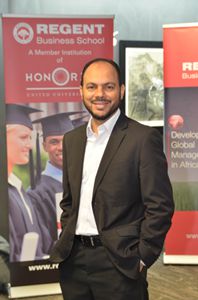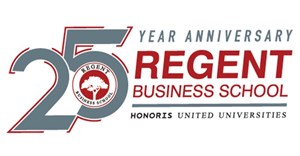Trending
Elections 2024
Jobs
- Administrative Assistant Cape Town
- ICT Support Port Elizabeth
- Senior Software Engineer and Business Systems Manager Cape Town
- Student Recruitment Advisor Waterfall
- Senior Lecturer - Editing (Fiction) Johannesburg
- Lecturer - School of Information Technology Cape Town
- Contract Assessors Remote
- Financial Manager Johannesburg
- Lecturer In Editing Durban
- Lecturer: Computer Science Cape Town
How business schools can prepare students for employability

It is no longer news that disruptive technologies will be the driving force behind the fourth industrial revolution. In fact, it sounds clichéd to even talk about how the world of work is in a profound state of flux, relentlessly interspersed with major disruptions, and that these developments are shifting business models in all sectors, increasing the pace of change in job destruction and job creation. The reality is that the estimate of global economic returns on this revolution is $16-trillion. Given the sluggish growth in the global economy and recent threats of trade wars among major economies, this projection is big news.
However, given the scale of investment in programmes to prepare students for employability, "graduates will need sufficient skills to ‘de-risk’ new enterprise development initiatives in Africa", as African Development Bank president Akinwumi Adesina said.
A cursory glance at the history of global economic development shows us that these revolutions have always been accompanied by job losses, followed by a period of recovery. The challenge with the fourth industrial revolution is that the prognosis for job creation is bleak. The hollowing-out of the middle segment of the labour market is the most serious threat.
Research indicates that, on average, a third of the skills required to perform today’s jobs will be wholly new by 2020. Education and training systems, post-school education in particular, have been static and underinvested in for decades. They are considered largely inadequate for new labour market needs. Criticism that higher education is obsessed with disciplinary knowledge acquisition rather than preparing graduates to be ready to "plug in and play" in the workplace has become more acute in recent years.
It is estimated that 75-million people globally are unemployed and that 50% of young people aren’t convinced their higher education has improved their chances of finding a job. A recent McKinsey report indicates that by 2020 there will be a shortfall of 85-million high-and middle-skilled workers.
Employers demand new standards for what graduates should be able to do, in being able to adapt and innovate in response to changing circumstances. The key shift in industry expectations is for graduates to move from "discipline-specific" expertise to a broad range of skills applicable in different work contexts.
These competencies are hard to find among recent university graduates. This is where business schools can come in. They can be engaged in the development of innovative training and education in transferable skills. These can help bridge the gap between learning and work, and improve graduate job readiness, thus reducing the shortage of skills in the workplace and the frequent education-job mismatch.
To meet these challenges, business education must be transformed in ways that will enable students to acquire the creative thinking, flexible problem-solving, collaboration and innovation skills they need to be successful in work and life.
Currently, schools are affected by a larger system that often reinforces the status quo instead of encouraging innovation and change.
Business and management qualifications should provide a range of contexts, ensuring that graduates leave not only with theoretical knowledge but also the ability to apply it across a range of situations.
Students should be involved in shaping the future. This type of pedagogy will require students and teachers to consider how current events affect business and how it can respond.
Most education systems are based on models put in place over a century ago. Fragmented attempts at reform and modernisation have failed, in most cases, to address the growing gap between conventional education systems and the demands of modern life and new labour markets.
Klaus Schwab, executive chair of the World Economic Forum, constantly reminds us that the fourth industrial revolution will be far more comprehensive than any previous industrial revolution, because of the speed of society’s acceptance and implementation of its concepts, as well as the meaningful changes that will occur on a societal and individual level.
At Regent, we have created a laboratory to develop employability skills to prepare students for work-readiness, helping them envision a variety of career paths and equipping them with the relevant skills and competencies. Digital skills alone are not enough. Students must understand what to do with them, and the new curriculum will help learners apply and innovate with technology so they can play an active role in shaping the tools of the future. In addition, the curriculum will focus on skills such as critical thinking, adaptive intelligence, creativity and innovation, problem-solving, collaborative intelligence, communication and creativity.
These capabilities encompass the knowledge, skills and behaviours that, together with curriculum content, will help students to live and work successfully in the 21st century.
Business schools are obliged to meet students’ expectations. The management education system must provide compelling learning experiences that connect all students to adulthood, as well as domestic and global labour markets based upon a convergence of academic, technical and employability skills.
Economies are entering a period in which artificial intelligence (AI) has the potential to overcome physical limitations and open up new sources of value and growth.
As business schools and other higher education institutions think about how to prepare graduates for "plug in and play", we must do so not with the idea that transformative technologies and AI are simply productivity enhancers; rather, we must see them as tools that can transform our thinking about how growth is created.
About Ahmed Shaikh
Ahmed Shaikh is MD of Regent Business School.- Regent Business School's webinar: Thought-provoking National Budget 2024 analysis05 Mar 12:26
- Building a strong personal brand in the digital age: Insights and strategies18 Dec 14:08
- Celebrating 25 years of RBS - A legacy of excellence in higher education02 Nov 14:31
- Empowering tomorrow's workforce: Thriving in the talent battleground10 Oct 15:15
- Navigating the future of South African healthcare: A reflection on the NHI Fund and Bill21 Sep 14:48
















